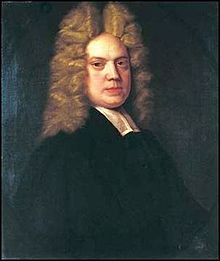It has been a week of
anniversaries. Today, of course, is the 59th anniversary of the
Coronation of Her Majesty the Queen; a strange number to celebrate with such
festivities as this weekend’s, but it is all grist to the royalist mill. On
Tuesday was the anniversary (the 352nd) of the wonderful Restoration
of the late King Charles, and if my acquaintance is anything to go by, this is
being even more widely celebrated than the Diamond Jubilee.
There are still plenty of us Highflyers
about, attached to the good old way of Passive Obedience, Non-Resistance, and
Hereditary Right. Like the Deputy Prime Minister, we have our doubts about the
Act of Succession. But we are true to our oaths, have abjured (if not
forgotten) the Pretender, and will celebrate today with unfeigned delight,
although omitting the specifically Hanoverian verses.
Our attachment to Passive
Obedience, Non-Resistance and Hereditary Right is, after all, shaken by
yesterday’s anniversary (the 342nd) of the Treaty of Dover, although
we are not convinced that the Revolution has either delivered on its promise of
freedom from arbitrary and intrusive government, or avoided a French alliance.
We seem to suffer still under both.
We are, however, content. You will
not find us with placards outside the General Synod, chanting “a king de facto will not do”. In fact we regard
the excesses of those too attached to the previous dispensation with some
distaste. A little Popery does no harm, as preserving us from Puritanism, and the
Stuarts’ prelediction for exotic queens set rather a precedent for
Anglo-Catholics. But they do their cause no good by slavish adherence to
authorities which the constitution of the Church of England repudiates, and to
bishops as German as Hanover.
We are, in fact, still stuck in
1714. The Fanatics get all the converts, the Socianians write all the books,
the Latitudinarians have all the bishoprics, and the Non-Jurors get all the
publicity.
But what of we non-juring Jurors?
We loyally proclaim afresh in each generation the profession of the Church of
England, as it was left by our fathers. It is true that we would add to the
historic formularies that bear witness the Homilies
Against Rebellion, Eikon Basilike
and the Perils of False Brethren in
Church and State. But even without these additions we have been assured of
an honoured place. Archbishop Laud, Thomas Ken, and Samuel Johnson have been
added to the calendar (not that we use that calendar, of course). It only wants
Atterbury, Bolingbroke and Judge Jeffreys and our joy will be complete.
More urgently, however, we ask the
House of Bishops to fulfil the promise of its new policy and ensure for us a “constant
supply” of High Tory Bishops. Our liking for moleskin waistcoats is not mere fustiness, but a matter of theological conviction. So it is only right that we have bishops who will drink their toasts over the water and archdeacons who will take the shortest way with the Dissenters. Not every bishop a Tory, of course (we could hardly expect that) but neither every one a Whig.
In turn we advise hotheads on either side to refrain from Associations, and Jacobites and Non-Jurors to cease scorning the Church of England. A little Passive Obedience and Non-Resistance would do wonders for every party in the Church of England. As ever, a bit of Highflying Toryism proves to be the true via media.
For while we might also like to see the restoration of Hereditary Right, we think it as likely as that the growth of iniquity will really be stopped, that decayed things will actually be restored, and that restored things will be properly maintained. Better to spend our energies in a serious call to devout and holy lives. And one day, perhaps, the King shall have his own again.
In turn we advise hotheads on either side to refrain from Associations, and Jacobites and Non-Jurors to cease scorning the Church of England. A little Passive Obedience and Non-Resistance would do wonders for every party in the Church of England. As ever, a bit of Highflying Toryism proves to be the true via media.
For while we might also like to see the restoration of Hereditary Right, we think it as likely as that the growth of iniquity will really be stopped, that decayed things will actually be restored, and that restored things will be properly maintained. Better to spend our energies in a serious call to devout and holy lives. And one day, perhaps, the King shall have his own again.

We ought to keep Oak Apple Day every year, wearing our oak apples with pride.
ReplyDeleteThe roots of the American Republic, of the campaign against the slave trade, of Radical and Tory action against social evils, of the extension of the franchise, of the creation of the Labour Movement, and of opposition to the Boer and First World Wars, are in Catholic, High Church (and thus first Methodist and then also Anglo-Catholic, as well as Scottish Episcopalian), Congregationalist, Baptist, Quaker and other disaffection with the Whig Revolution of 1688.
Within those communities, long after any hope of a Stuart restoration had died, there remained a sense that the Hanoverian State, its Empire, and that Empire’s capitalist ideology were less than fully legitimate, a sense which had startlingly far-reaching consequences.
Radical action for social justice and for peace derived from testing the State and its policies against theologically grounded criteria of legitimacy.
It still does.